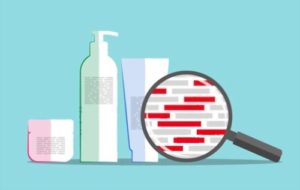 The skin is the body’s largest organ and its main function is to form a protective barrier for the body. However, 60% of the chemicals which we apply topically are absorbed into the body and many of these synthetic ingredients are known to contain harmful chemicals which can majorly disrupt our bodies and may increase the risk of chronic disease. Not only can they induce problems with our internal health, long-term they do nothing for our skin, possibly exasperating the issue they are supposed to be fixing, or creating new ones.
The skin is the body’s largest organ and its main function is to form a protective barrier for the body. However, 60% of the chemicals which we apply topically are absorbed into the body and many of these synthetic ingredients are known to contain harmful chemicals which can majorly disrupt our bodies and may increase the risk of chronic disease. Not only can they induce problems with our internal health, long-term they do nothing for our skin, possibly exasperating the issue they are supposed to be fixing, or creating new ones.
Today as people become more focused on their long-term health, they are looking to replace these products with natural products. Natural ingredients have been used to protect and heal the body for as long as man has existed, and herbal remedies relating to skincare have stood the test of time.
Where to start with natural oils for our external health.
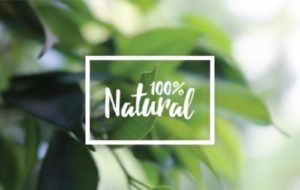 Cold-pressed natural oils retain all the nutrients of the original plants including their therapeutic properties, but presented in a potent convenient oil. A little goes a long way. They are extremely versatile and can impart a wealth of benefits for hair, skin, and nails. They can also be used as massage oils, for the use of aromatic essential oils, and are multi-functional replacing many of the beauty products on our bathroom shelves. Here are a list of the top four oils for our external needs:
Cold-pressed natural oils retain all the nutrients of the original plants including their therapeutic properties, but presented in a potent convenient oil. A little goes a long way. They are extremely versatile and can impart a wealth of benefits for hair, skin, and nails. They can also be used as massage oils, for the use of aromatic essential oils, and are multi-functional replacing many of the beauty products on our bathroom shelves. Here are a list of the top four oils for our external needs:
Jojoba Oil
Jojoba is idiginous to the Southwestern United States, although it is now grown all around the world. Native Americans created a salve from the heated jojoba seeds to apply to the skin and hair, to heal and condition.
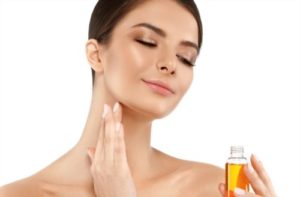 For skin:
For skin:
Jojoba oil is similar to the skin’s natural sebum which helps to balance oil production. Non-comedogenic it dissolves the sebum in clogged pores without clogging them, making it highly suitable for acne-prone skin. The anti-inflammatory and antibacterial properties will reduce redness and prevent infection.
Jojoba oil is a humectant and forms a protective barrier. This is particularly advantageous to those with dry skin, including skin damaged by eczema or psoriasis. Jojoba oil will encourage the binding of skin cells separated due to a wound or cut, and actively promote wound healing.
Jojoba oil is a strong antioxidant, protecting against skin damage caused by free radicals, and premature ageing. For the more mature skin, this oil will stimulate collagen production, thus improving the tone, plumpness and elasticity of the skin, and diminishing the appearance of fine lines and wrinkles.
Jojoba oil is antifungal and can provide relief from inflammation and discomfort caused from fungal infections, including ringworm, athlete’s foot and nail infections. It is also an effective make-up remover, can be used to remedy/prevent chapped or cracked lips, and is perfect for a massage for babies.
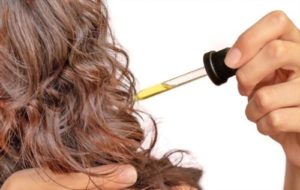 For hair:
For hair:
Jojoba is well known for its use within hair care products. For a weekly treat for the hair and scalp, massage some oil onto the scalp. It can help to remove blockages in the pores and follicles, thus encouraging hair growth and reducing hair fall. The high concentration of vitamins B & E, plus zinc and copper promote hair thickness and growth, making the strands healthier. Jojoba oil will also help to balance the oil production on the scalp, reducing dryness or oiliness. Moisturising the follicles provides nourishment and helps to promote strong and healthy hair. For split ends, flyaway or frizzy hair, smooth with a small amount of oil.
Other uses:
✓ Eyelash and brow treatment
✓ Nail and cuticle treatment
✓ Beard conditioner
Almond Oil
The cosmetic benefits of almonds were known and utilised by the Ancient Greeks, Romans and Egyptians. Cleopatra and Josephine de Bogarnet, wife of Napoleon Bonaparte, are both reputed to have been fans of almond oil.
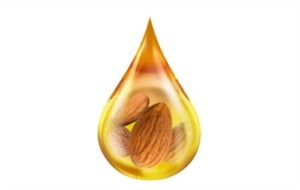 For skin:
For skin:
Almond oil is extremely gentle, light and easily absorbed, penetrating deep to restore the skin’s natural protective film to protect against oxidative damage and prevent premature ageing. It helps to stimulate the natural production of collagen and elastin, accelerate skin renewal, repair skin damage, and normalise the sebaceous glands to balance the oil content in the skin. Regular use can accelerate regeneration of the skin cells and improve elasticity, even out the skin tone and improve the complexion, reducing fine lines, wrinkles and sagging skin.
Almond oil can benefit skin conditions such as eczema and psoriasis. Almond oil will dissolve excess sebum and unclog pores from dirt and sebum, whilst its antibacterial property can reduce acne, and protect against infection and prevent further breakouts. As as a non-comedogenic it won’t block the pores
Almond oil can also be used as a cleanser, make-up remover, to prevent the formation of stretch marks during pregnancy, and to remedy under eye puffiness and dark circles.Studies have indicated the ability of almond oil to fade the appearance of stretch marks and post-operative scars, and soften and tone the skin.
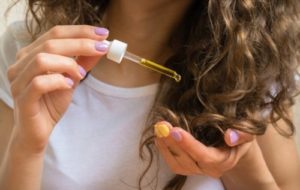 For hair:
For hair:
Almond oil is not new to the world of hair care, having been used for centuries to treat dry scalp conditions. Suitable for all hair types, it moisturises, seals and protects, is absorbed quickly but does not weigh down the hair. Used regularly, almond oil will help you to grow stronger, longer and healthier hair.
Almond oil calms irritation and inflammation of the scalp and reduces the symptoms of dandruff, seborrheic dermatitis and scalp psoriasis. Almond oil will infuse the hair with essential nutrients, helping to retain moisture and elasticity, and reduce friction during styling, and protect against damage caused by brushing, heat styling, and chemical treatments such as colouring. Damaged hair will benefit from the emollient properties which can fill gaps in the hair at the cellular level, smooth the hair cuticle, and improve overall texture and resilience. Very dry hair, split ends and frizz will be fortified by the richness of the fatty acids. Almond oil contains magnesium and natural biotin, known to promote and accelerate hair growth and reduce thinning.
Other uses:
✓ Eyelash and brow treatment
✓ Nail and cuticle treatment
✓ Beard conditioner
Grapeseed Oil
Grapeseed oil, a by-product from the wine industry, can be traced back thousands of years. It is believed that Ancient Greeks, Romans and Egyptians used the oil.
For skin:
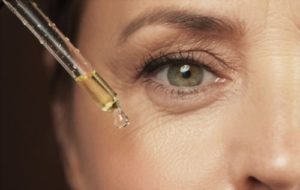 Grape seed oil is well used in the cosmetic industry for its impact on damaged skin and in anti-ageing formulas. Extremely lightweight and easily absorbed, it is perfect for all skin types. Containing high levels of linoleic acid, it soothes and nourishes the skin, accelerates the repair of damaged skin, and is highly beneficial for the treatment of acne, dermatitis and eczema and for combating ageing skin. Grapeseed oil deeply cleanses the skin, removes sebum blocked in pores, and reduces inflammation.
Grape seed oil is well used in the cosmetic industry for its impact on damaged skin and in anti-ageing formulas. Extremely lightweight and easily absorbed, it is perfect for all skin types. Containing high levels of linoleic acid, it soothes and nourishes the skin, accelerates the repair of damaged skin, and is highly beneficial for the treatment of acne, dermatitis and eczema and for combating ageing skin. Grapeseed oil deeply cleanses the skin, removes sebum blocked in pores, and reduces inflammation.
Studies confirm that grape seed oil can promote collagen repair and protect against sun damage. It hydrates and firms the skin, protects against premature ageing and also reverses existing damage, diminishing the appearance of dark spots, fine lines and wrinkles. A review in the Molecular Journal of International Science identified that grape seed oil can reduce inflammation in the skin’s epidermal and dermal layers, protecting against inflammatory disorders such as eczema and rosacea. By fortifying the skin’s barrier, preventing moisture loss and softening the skin, it can help to soothe and repair the appearance of eczema and dry skin. Grape seed oil can also help to diminish hyperpigmentation and the appearance of scars, varicose veins, spider veins, cellulite and stretch marks.
For hair:
 Light, odourless, and extremely versatile, grapeseed oil is a great addition to your hair care regime. Grape seed oil offers superior abilities to treat brittle and weak hair and hair loss. It effectively fights and reduces the symptoms of dandruff, dermatitis and psoriasis. Excellent for a scalp massage, grape seed oil boosts the blood circulation to the scalp to stimulate hair follicles and boost growth. It also blocks the production of the hormone DHT which causes hair loss.
Light, odourless, and extremely versatile, grapeseed oil is a great addition to your hair care regime. Grape seed oil offers superior abilities to treat brittle and weak hair and hair loss. It effectively fights and reduces the symptoms of dandruff, dermatitis and psoriasis. Excellent for a scalp massage, grape seed oil boosts the blood circulation to the scalp to stimulate hair follicles and boost growth. It also blocks the production of the hormone DHT which causes hair loss.
Ultra lightweight and hydrating, this oil perfectly moisturises and is light and gentle enough for fine or thinning hair, yet nourishing enough for thick, curly or coarse hair. Grape seed oil protects against UV, oxidant and heat damage, strengthens the hair structure and restores texture. Perfect for adding shine, reducing frizz and untangling the hair. Use as a quick fix for frizz control by adding a tablespoon to one cup of distilled water in a spray bottle, shake well and spray liberally to frizzy hair.
Other uses:
✓ Eyelash and brow treatment
✓ Nail and cuticle treatment
✓ Beard conditioner
Argan Oil
Argan Oil is rich in vitamin E and fatty acids, and is well known for its amazing benefits for the skin, hair and nails. Native to Morocco it has been helping generations care for their hair and skin, and is known as “liquid gold”.
For skin:
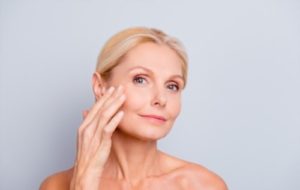 Argan oil is suitable for all skin types. Quickly absorbed into the skin without leaving a sticky residue, it moisturises, softens and nourishes the skin and improves wound healing. Argan oil has powerful antioxidant and anti-inflammatory properties providing healing for skin conditions such as dermatitis, psoriasis, and eczema, providing regeneration of damaged cells, and reducing symptoms.
Argan oil is suitable for all skin types. Quickly absorbed into the skin without leaving a sticky residue, it moisturises, softens and nourishes the skin and improves wound healing. Argan oil has powerful antioxidant and anti-inflammatory properties providing healing for skin conditions such as dermatitis, psoriasis, and eczema, providing regeneration of damaged cells, and reducing symptoms.
Argan oil can effectively regulate amounts of sebum on the skin, and its anti-inflammatory, antibacterial and antifungal properties can reduce any infection and reduce any redness and inflammation.
This illustrious oil helps to protect against and reverse the signs of premature ageing. It improves blood microcirculation in the subcutaneous layer, stimulates the natural production of collagen and elastin, increases the skin’s firmness and elasticity and reduces the appearance of fine lines and wrinkles, and age spots. In a recent study, researchers affirmed that argan oil produced a significant increase in the skin’s elasticity and hydration.
For hair:
 Known as ‘liquid gold’, argan oil has a long illustrious history as a hair care oil. Argan oil deeply nourishes the scalp and roots, balances sebum production and restores the pH level of the hair. Its antimicrobial, antibacterial and antifungal properties will promote a healthy scalp and protect against conditions like dandruff and dermatitis. A natural moisturiser, argan oil will penetrate the cortex to nourish the hair shaft, helping to repair damage from within, regenerating the cells, strengthening the hair, promoting elasticity, and forming a protective layer around each strand, and protecting against brittleness, breakage and split ends. Regular use will accelerate the production of keratin, stimulating hair growth and protecting against hair fall and loss. Argan oil is extremely lightweight and ideal for curly, textured hair. Leaves the hair soft, smooth, shiny and manageable. Argan oil may be used as a leave-in conditioner before heat styling or to reduce frizz, and as a styling product to define curls.
Known as ‘liquid gold’, argan oil has a long illustrious history as a hair care oil. Argan oil deeply nourishes the scalp and roots, balances sebum production and restores the pH level of the hair. Its antimicrobial, antibacterial and antifungal properties will promote a healthy scalp and protect against conditions like dandruff and dermatitis. A natural moisturiser, argan oil will penetrate the cortex to nourish the hair shaft, helping to repair damage from within, regenerating the cells, strengthening the hair, promoting elasticity, and forming a protective layer around each strand, and protecting against brittleness, breakage and split ends. Regular use will accelerate the production of keratin, stimulating hair growth and protecting against hair fall and loss. Argan oil is extremely lightweight and ideal for curly, textured hair. Leaves the hair soft, smooth, shiny and manageable. Argan oil may be used as a leave-in conditioner before heat styling or to reduce frizz, and as a styling product to define curls.
Other uses:
✓ Eyelash and brow treatment
✓ Nail and cuticle treatment
✓ Beard conditioner
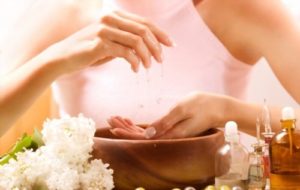
How to use:
For Skin:
- Use as a make-up remover, add a few drops to a cotton wool pad and gently wipe across the face. Wash the face with warm water to remove any dirty oil, and massage in 1-2 drops to moisturise and seal.
- Moisturiser: Massage 1-2 drops into the skin morning and evening, or alternatively, add a few drops to your usual moisturiser.
- For irritated, dry or itchy skin, apply 1-2 drops thrice daily, massaging well into the skin.
For hair:
- Massage a coin-sized amount of oil into the scalp and hair of damp hair. Use a wide toothed comb to ensure that all strands are covered and leave on for a minimum of ten minutes. Alternatively, wrap hair in a towel and leave on as an overnight treatment. Shampoo off. Recommended twice a week treatment.
- Add a few drops to your usual shampoo and conditioner for everyday use.
- To control flyaway hair, or control frizz or split ends, massage a few drops into the palms of your hands and sweep over the hair.
So which oils will you incorporate into your daily diet and health and beauty routine?
